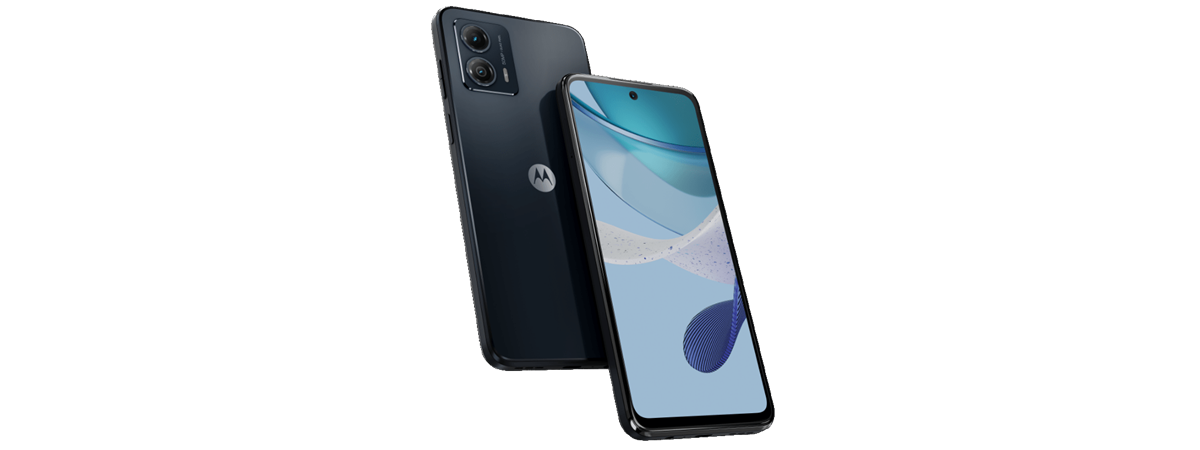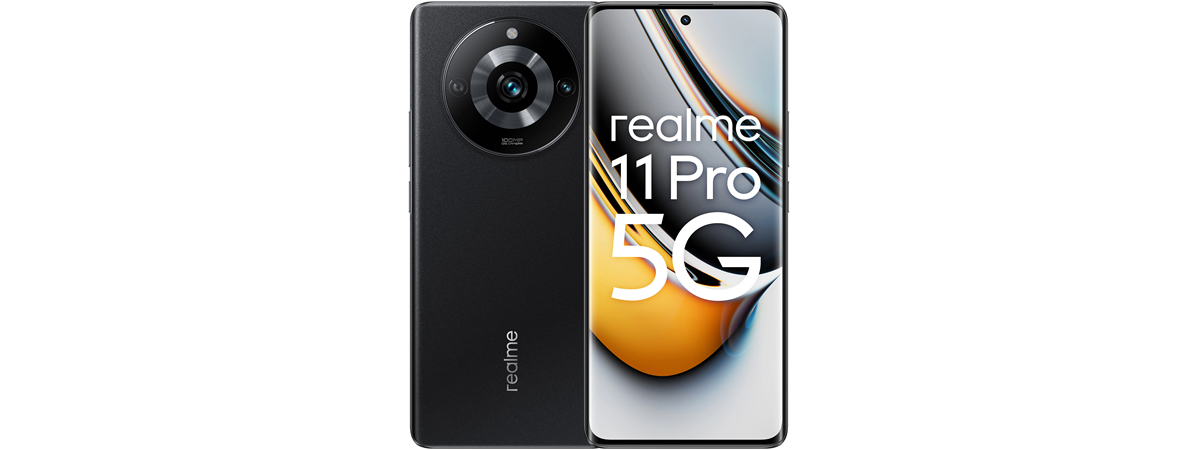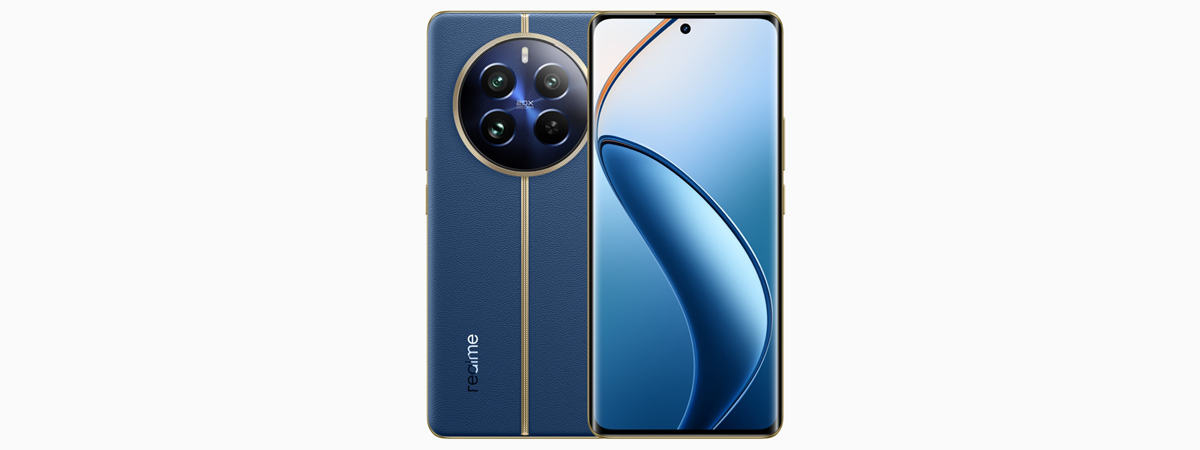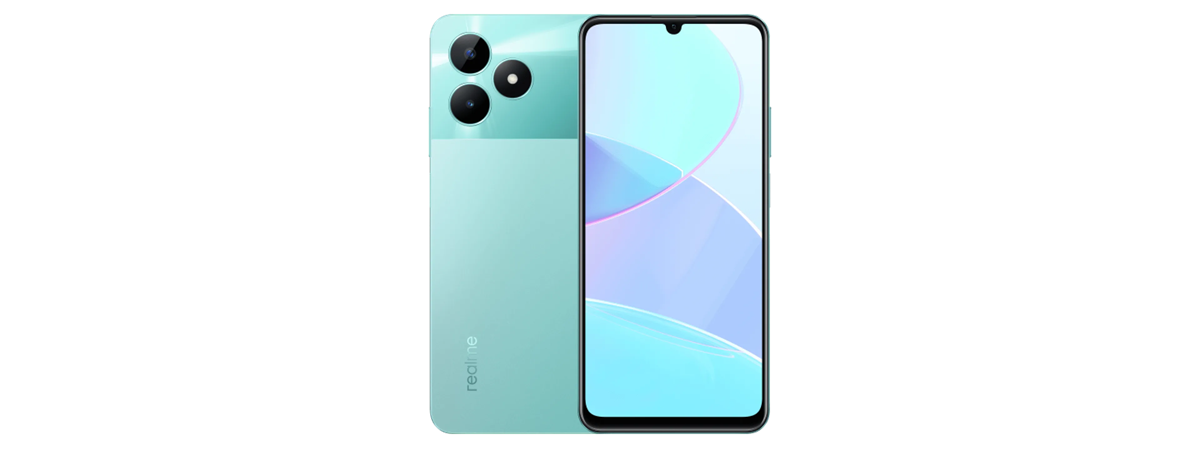
If you want a smartphone with a big display, a large battery, decent performance, and an affordable price, you might want to check out the new realme C51. This is an Android smartphone from Realme, a Chinese brand that offers competitive devices in both the mid-range and the low-end segments of the market. In this review, I’m going to take a look at the features and specs of the new realme C51 and help you decide if it’s the right choice for you. Let’s begin:
realme C51: Who is it good for?
You should take the realme C51 smartphone into account if:
- You’re looking for an affordable Android phone
- You’re an undemanding user, and all you want is a decent level of performance in daily activities
- You want a smartphone with a large battery and fast charging
Pros and cons
These are the things I consider pros about the realme C51:
- Attractive design
- Big screen that’s easy on the eyes
- Excellent battery life
- Supports fast charging, and the box includes the appropriate charger
- Affordable price
There are some downsides to consider as well:
- The display has a low resolution
- The fingerprint reader is fickle to use
- Plenty of bloatware
Verdict
The realme C51 is a budget-friendly smartphone that targets the low-end market. It offers a sleek design, a large display, a long-lasting battery, and smooth performance for basic tasks. It could be a suitable option for older or less demanding users. However, it’s decidedly not a great device for gaming or photography, as it lacks the performance required to handle these activities well. Still, such shortcomings are the norm for smartphones in its price-range. I believe that the realme C51 is a reasonable option for people who just want a simple and affordable phone with excellent battery-life.
Unboxing the realme C51
The realme C51 comes in an average-sized box for an Android smartphone. Colored brightly in yellow and black, the box has a minimalistic design, with the top and sides of the box featuring only the name of the phone and its maker. For technical details and main features, you’ll have to look at the sticker found on the bottom of the box.
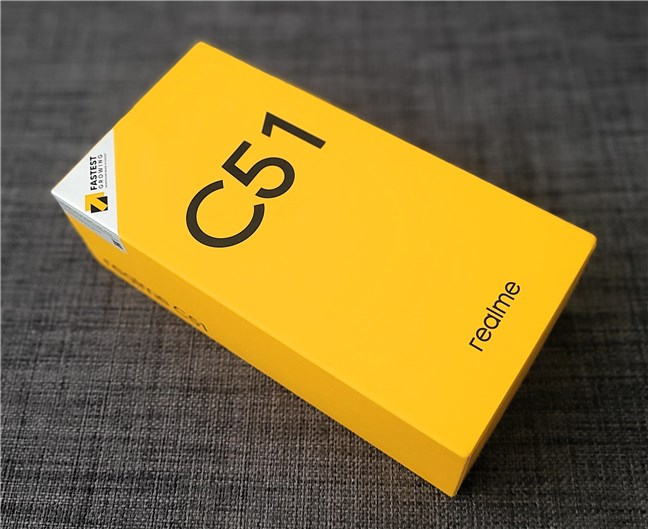
The box of the realme C51
When unboxing the realme C51, you find that you don’t get just the smartphone in the package but also a fast charger with a detachable USB-C cable, a silicone protective cover, and a user manual that includes details about the warranty.
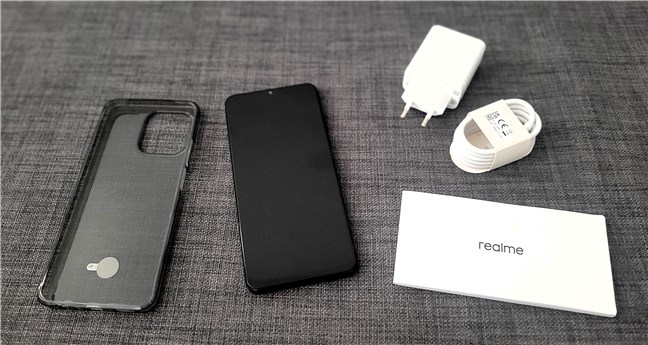
Unboxing the realme C51
Unboxing the realme C51 is a pleasant experience, especially considering the fact that you also get a fast charger and a protective cover for it. These are things that you don’t get from most higher-priced Android devices, so it’s worth appreciating them.
Design and build quality
I’ll start by saying that the realme C51 is a large phone with a large screen. Measuring 6.74 inches (109.7 cm) in diagonal, the display of the realme C51 offers plenty of space. That’s a good thing in a way, but the smartphone may be too large to be used comfortably by those with smaller hands or shorter fingers. Moreover, although the phone’s size is significant (167.2 x 76.7 x 8 mm or 6.58 x 3.02 x 0.31 in), its weight is rather low: 186 g (6.56 oz). That’s probably a direct consequence of the materials used for making the smartphone: plastic frame and plastic back.
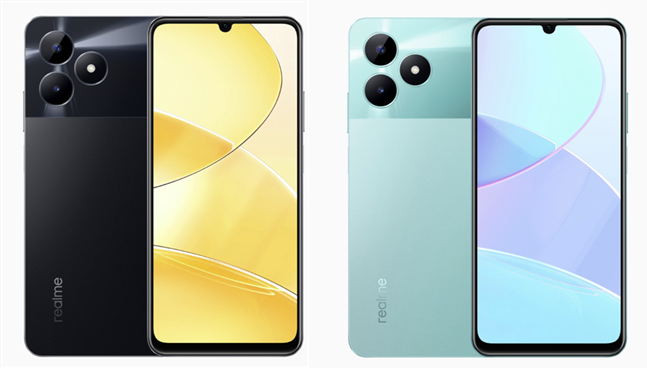
Color options for the realme C51 phone
As you can see in the previous picture, the realme C51 looks quite interesting and even fashionable, I might say. Especially considering that we’re talking about an entry-level device with a small price. In terms of color, you can get the realme C51 in one of the two options available: Mint Green or Carbon Black. The sample I received in testing was the latter. The first impression it made on me was that this is quite a beautiful smartphone for a device in its class. The upper area of its back, where the cameras also reside, is all glossy, while all the rest is matte. Unfortunately, though it looks great, the upper side is a magnet for dust, lint, and fingerprints. I didn’t even get to shoot my first photos of this smartphone, and its back was already very dirty. On top of that, the protective case that comes bundled with the phone doesn’t help either, as the camera system area is not covered by it.
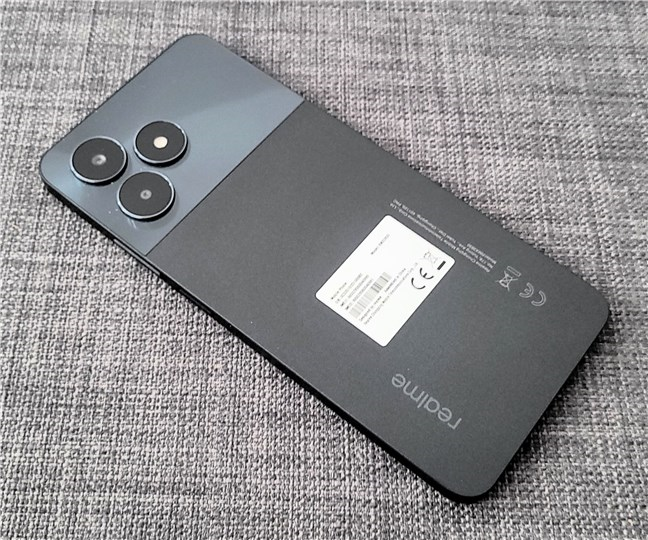
The back of the realme C51
The design of the smartphone’s camera system is interesting. Looking similar to what you get on iPhones, the upper-left area on the back of the realme C51 houses three protruding rings. At first, you may be tempted to think that there are three cameras there. However, the reality is that only the two rings on the left are cameras per se; the third ring is actually home to the smartphone’s flash.
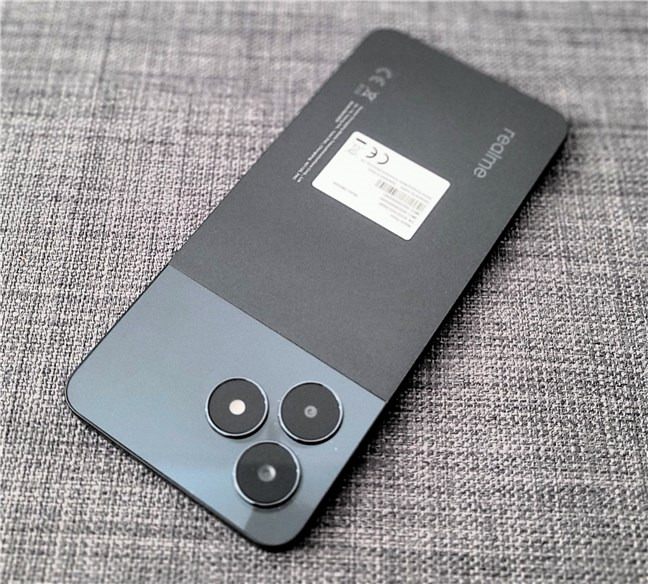
The main camera system on the realme C51
The realme C51, being an entry-level device, doesn’t come with any certification against dust or water protection. This probably helps cut down the manufacturing costs quite a bit, as does the plastic frame and back of the phone. A similar choice can be seen in the display protection, which is covered by tempered glass but not by a high-end one like Gorilla Glass. Interestingly, the display doesn’t have a pre-applied protective sheet on it, which is odd considering that most realme devices do.
The smartphone’s corners are slightly curved, but the edges of the screen and the ones of the back cover meet the frame at a right angle. However, these edges are diagonally cut, which gives a better feeling when you’re holding the phone in your hand.
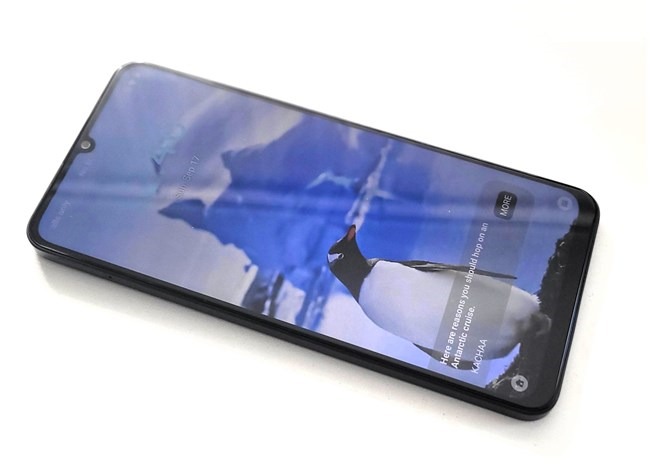
The front of the realme C51
Continuing with the appearance of the smartphone, the display’s bezels are visible but not too large to be considered unpleasantly looking. On the upper side, you’ll also see a teardrop-shaped cutout right in the middle of the bezel: it’s where the front selfie camera is found.
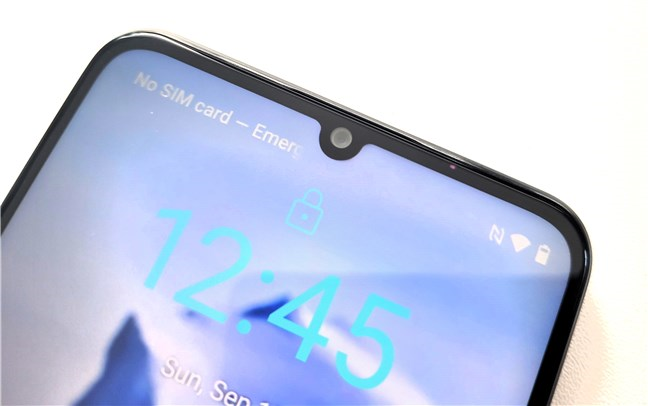
The selfie camera of the realme C51
Speaking of what’s found on the frame of the realme C51, if you look at its left edge, you’ll find the SIM tray towards the top.

realme C51's left edge
The right side holds the power button and the volume rocker, also positioned towards the top of the phone. By the way, the power button is also the fingerprint reader.

realme C51's right edge
The top edge of the realme C51 is all empty, but there’s a relatively long cutout between it and the screen, where the main speaker of the phone is located.
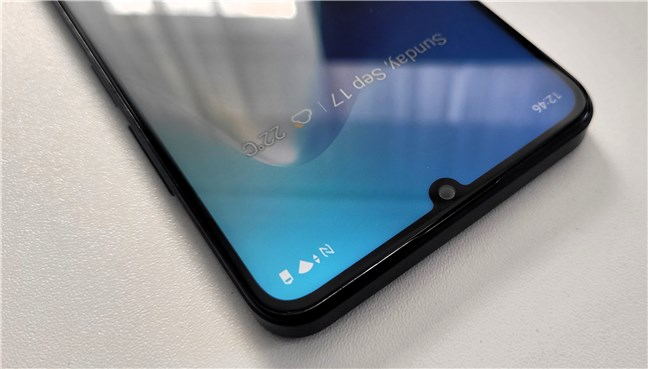
realme C51 top edge
On the phone’s bottom edge, you get the usual array of elements: the USB Type-C port, the microphone, and the loudspeaker. On the realme C51, you also get a 3.5 mm headphone audio jack, which is a nice addition.
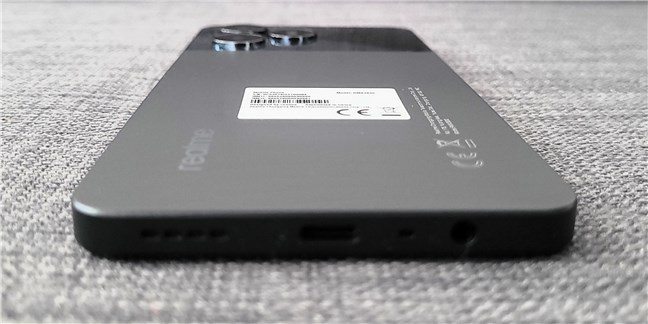
realme C51's bottom edge
The realme C51 may be an entry-level device, but that doesn’t mean that it doesn’t look good. For a smartphone in its class, I appreciate the design. However, I wished that the glossy area on the back of the phone wasn’t such a dust magnet.
Hardware specifications
The realme C51 is equipped with the same Tiger T612 chipset I’ve seen on the realme C53. This is a 4G SoC (System on a Chip) launched by Unisoc in May 2022. Manufactured on a 12 nm fabrication process, it offers an eight-core processor (two Cortex-A75 cores and six Cortex-A55 cores) with a maximum frequency of 1.80 GHz and a Mali-G57 graphics processing unit. As for memory and storage, the smartphone comes with 4 GB of RAM and 64 or 128 GB of internal flash storage.
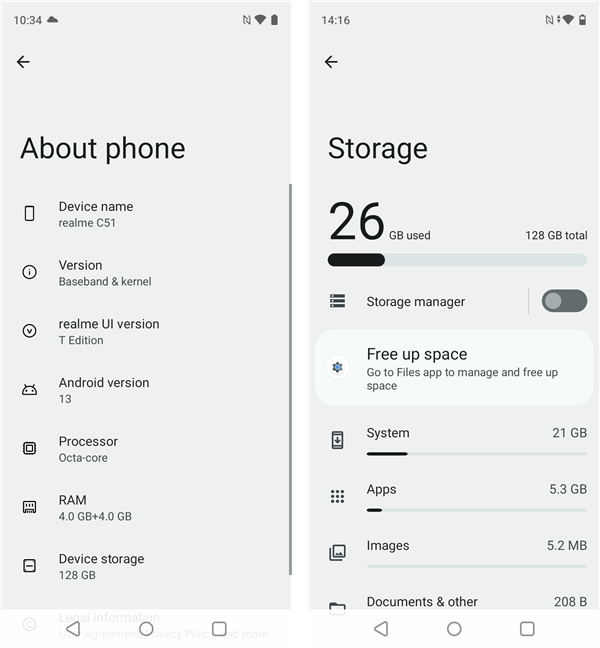
realme C51's hardware specs
As you’ve probably noticed in the previous image, the sample I tested was the 128 GB model. Of that, 26 GB were occupied by the operating system and default apps, leaving about 102 GB free for the user’s personal files and other apps. If you need more space, the phone also has a dedicated microSD slot, separate from the two SIM slots available. Yes, the realme C51 is a dual SIM smartphone that supports the use of two nano-SIM cards simultaneously.
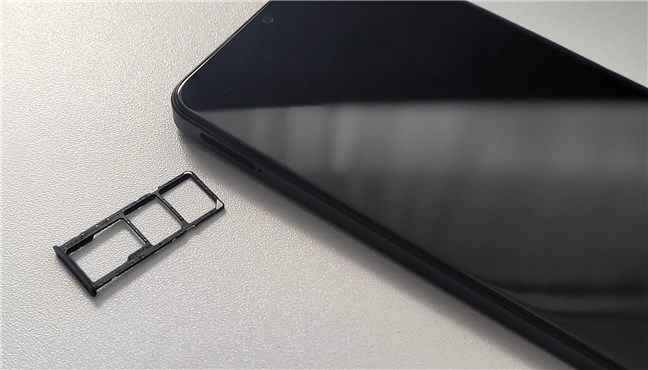
realme C51 supports two SIM and one microSD cards
On the C51 Android smartphone, realme put a large IPS LCD display with a 6.74” diagonal size and 20:9 aspect ratio. Though its peak brightness is theoretically high (560 nits), I found it quite difficult to use it comfortably in bright sunlight. However, in the shade, indoors, or on a cloudy day, the display looks great. The pixel density and the screen resolution are a bit low, though that’s an understandable compromise given the price of the phone. Pairing the physical size of the screen with a resolution of 720 by 1600 pixels, what you get in terms of pixel density is roughly 260 ppi. On the other hand, a piece of good news is that the display has a refresh rate of 90 hertz, which means smooth transitions and motion pictures.
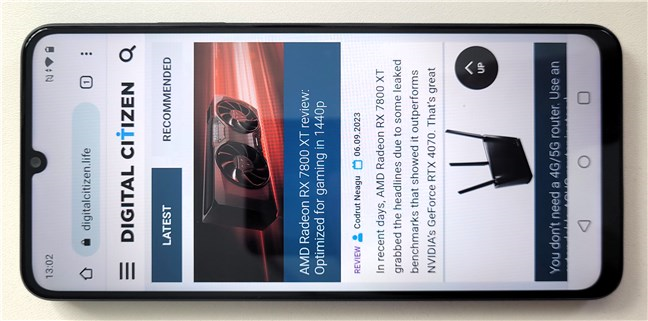
The display of the realme C51
The camera system on the realme C51 includes:
- A main (wide) camera with a 50-megapixel sensor, f/1.8 aperture, and PDAF (phase-detection autofocus).
- A depth depth camera with a 0.08 MP sensor.
- A front camera with a 5-megapixel sensor and an f/2.2 aperture.
Both cameras support HDR, but the good news ends there. Probably due to the chipset’s capabilities, the cameras can only record video at 30 frames per second, and the resolution is limited to 1080p for the main camera and 720p for the selfie one. Also, the phone has no optical image stabilization.
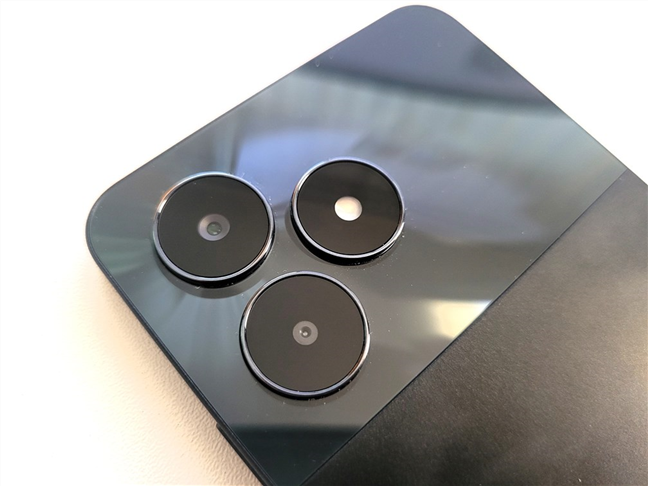
The camera system on the back of the realme C51
Connectivity-wise, realme C51 supports dual-band Wi-Fi 5 (802.11 a/b/g/n/ac) on the 2.4 and 5 GHz bands, but it can’t connect to wireless networks using Wi-Fi 6. Bluetooth is available in its 5.0 version, and NFC is present too, though only in some regions. You also get other common sensors, like a fingerprint reader, an accelerometer, a proximity sensor, a compass, and a gyroscope.
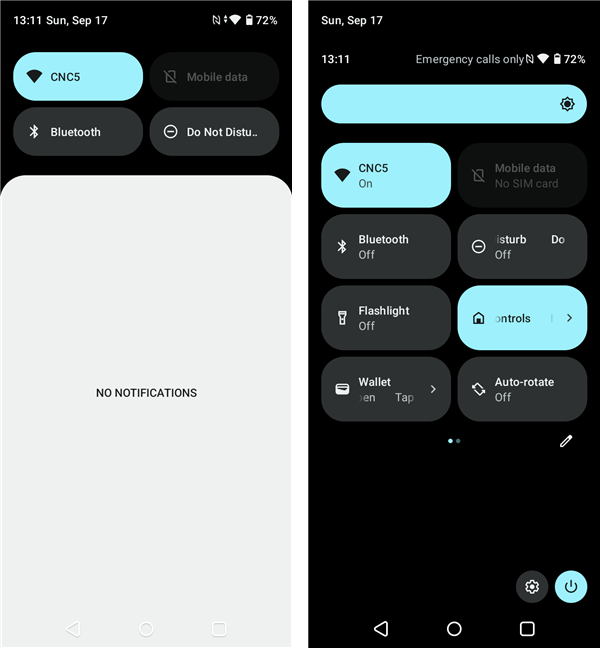
realme C51 has all the usual sensors
realme C51’s autonomy is provided by a large 5000 mAh battery that you can fast charge. Yes, one of the key selling points of this phone is its support for 33-watt wired fast charging, which is unusual for this price segment. Furthermore, a fast charger is bundled inside the smartphone’s box.
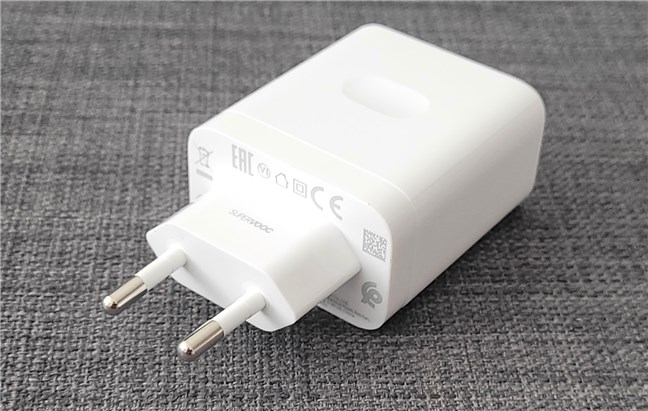
The fast charger bundled with the realme C51
If you want details on all the features and technical specs, you can find them here: realme C51. Unfortunately, the smartphone didn’t launch worldwide, so the link takes you to realme’s website for India.
The technical specs of the realme C51 tell the story of an entry-level Android device. While it should offer a good experience in daily tasks and common usage scenarios, it doesn’t look like a good smartphone for gamers or photography enthusiasts.
Read the next page of this review to find out more about the user experience offered by the realme C51, the quality of its cameras, its performance in benchmarks, and the software you get with it.


 21.09.2023
21.09.2023 